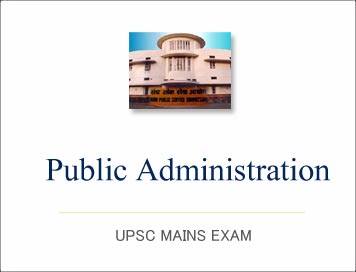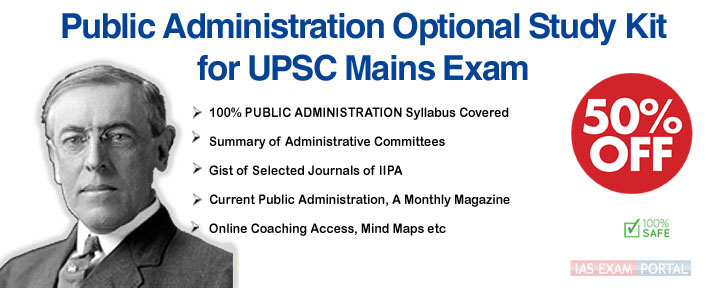UPSC Mains 2020 Public Administration Optional Categorized Analysis (Paper-2)

UPSC Mains 2020 Public Administration Optional Categorized Analysis (Paper-1)
- Exam Name: UPSC IAS Mains Public Administration (Paper-II)
- Marks: 250
- Time Allowed: 3 Hours
SECTION-A
Q1. Answer the following in about 150 words cach :
(a) Mughal administration incorporated a combination of indian and extra-Indian clements. Discuss. (Evolution of Indian Administration)
(b) There is a constant and continuous collision between bureaucratic values and democratic values which adversely affects development. Do you agree? Elaborate. (Philosophical and Constitutional framework of government)
(c) Parliamentary committees are at the deliberative core of parliamentary work which is crucial for resining legislations. Elucidate. (Union Government and Administration)
(d) Considering India's diversity, the planning pattern of 'one-size-fits-all' was discarded in favour of indicative planning. To what extent has it been useful to India? (Plans and Priorities)
(e) Even if all the States combine together, they cannot have their way decision-making in the GST Council, unless the Union agrees to it. Analyse this in the perspective of federalism in India.( State Government and Administration)
Q2.(a) District administration is the most important unit in governance. Most of the Central and State Government schemes and programmes are directed towards the district administration. In this context, discuss the challenges and problems posed to the district administration, (District Administration since Independence)
(b) The structural part of the Constitution of India is to a large extent derived from the Government of India Act, 1935, whereas its philosophical part has many other sources. Discuss the sources of the philosophical part.( Philosophical and Constitutional framework of government)
(c) The public services in India are an evolution of the British Raj. Trace the Indianization of the services. (Evolution of Indian Administration)
Q3.(a) Does the privatization of key public sector bodies augur well for welfarisin in India? Discuss with suitable illustrations, (Public Sector Undertakings)
(b) The spirit of democratic values requires that the independence of judiciary remains absolute. It is high time that the All India Judicial Service (AIJS) was created. Elaborate. (Union Government and Administration)
(c) To strengthen the Election Commission of India and its commissioners is the need of the hour. Suggest measures to make it more independent and impartial. (Union Government and Administration)
Q4.(a) Examine the National Health Policy in the context of the current pandomia situation, Identify the problems and suggest improvements. (Union Government and Administration)
(b) The Speaker of the State Assembly has assumed a significant role in formations and dissolutions of governmenta. Examine under the circumstances of coalition governments with examples. (State Government and Administration)
(c) At the district level, police functions under the overall supervision and control of the District Magistrate. Comment. (District Administration Since Independence)
Section-B
Q5. Answer the following in about 150 words each :
(a) Political neutrality of civil servants has been regarded as one of the cardinal principles in democrntic governments. Is its sanctity being maintained in practice in India? Elucidate. (Civil Services)
(b) Budget is an indicator of financial health of a polity which is reflected in the statement of income and expenditure. Discuss. (Financial Management)
(c) Panchayati Raj Institutions are still plagued by State control and domination of bureaucracy. Argue your case.( Rural Development)
(d) Urban local governance is perpetually afflicted with lack of financial autonomy and starvation of funds. Elaborate. (Urban Local Government)
(e) There has been a long-standing demand for separation of police investigation from prosecution. Analyze its merits and demerits. (Law and Order Administration)
Q6.(a) The office of the Comptroller and Auditor General of India stands on the pillar of autonomy. Discuss the major lacunae in the functioning of this constitutional body and also suggest measures for its strengthening. (Financial Management)
(b) Implementation of administrative reforms is humongous and arduous. What lacks the push to realize the changes? (Administrative Reforms since Independence)
(c)Immediate post-retirement appointments of high officers of government have become a new trend. Discuss its pros and cons. (Significant issues in Indian Administration)
Q7.(a) Ward committees in urban local governance have remained more tigers. The ideal of realizing effective people's participation in collabor with local functionaries is still in the pipeline. Evaluate the gap in the and practice. (Urban Local Government)
(b) Police needs to be made accountable and freed from the grip of politics. It is a big challenge not only for law and order but also for the development of the country. Critically examine. (Law and Order Administration)
(c) Civil servants are trained to follow rules and procedures so much that they become bureaucrazy. Do you agree? Justify. (Civil Services)
Q8.(a) "There are adequate legal mechanisms to address corruption malpractices in administration, but they have failed to curb the mea any noticeable degree." In the light of this statement, discuss the efficacy the institution of Lokayukta in Indian States. (Significant issues in Indian Administration)
(b) Despite the constitutional provisions for representation, the voice of weaker sections is not having the desired impact in the realms of Panchayati Raj Institutions. Critically examine. .( Rural Development)
(c) Ideally citizen-administration interface is supposed to be based on trustworthiness and purposefulness, in reality it is observed to be plagued by suspicion, conflicts, stresses and strains. Do you agree? Elaborate. (Significant issues in Indian Administration)


